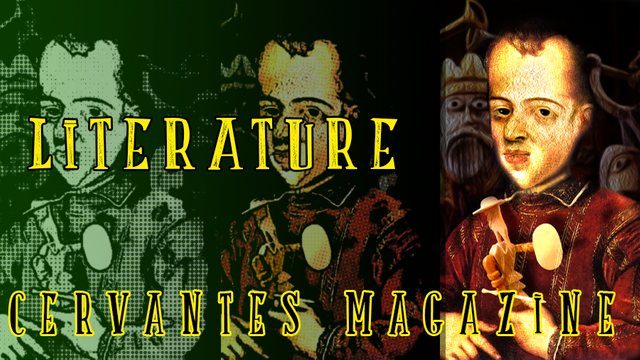Cervantes Magazine Number 24: Literature

He is one of the most famous and wealthy writers, many can’t explain how, or why, people argue that he is a bad writer, what leads his new and old readers to devour his hundreds of stories? Stephen King may have a clue: hidden fears emerge, fears that usually developed in childhood and remain dormant in adulthood.

Regardless of what can be said about the quality of Stephen King's works, which are authentic garbage, or as he himself said, the "literary equivalent of a Big Mac with french fries", most of his narrations are entertaining and connect with the reading media, causing stinging and blisters to the writers and readers of the literary establishment. Like it or not (you choose), King's work has an implicit message about childhood. He is one of the few authors that approaches to the theme by taking children as characters who, as expected, do not star stories for kids.
In 1986 he published one of his most ambitious novels (surpassed only in length and not in quality, in my opinion, by The Stand), with a more complex plot that recalls the narrative structure of Light In August by William Faulkner (calm down, I’ve only said structure), with the difference that King identifies the time jumps while we follow the tragic lives of the 7 protagonists who proudly call themselves "The Losers".
Of the 7, one of them is a girl, Beverly Marsh, and we will focus on her because she offers several points of interest and not only because she is a woman or a redhead. At the beginning of the novel, in 1985, Beverly, who was poor as a child, is an assistant to fashion designs, and has married a man, Tom, who manipulates her. In the episode entitled "Bervely Rogan Takes a Whuppin" (page 142), it is described the way in which the couple met, and the attributes that caught his attention: "very desirable [the best set of tits that Tom had seen in his life] and very vulnerable. " This vulnerability will gradually be exposed, which Tom detects as if it were some sign (quite vague but recognizable to himself) of battered child syndrome: "[...] the restless way her eyes moved, never quite meeting the eyes of whoever was talking to her, only touching them from time to time and then leaping nimbly away; her habit of lightly rubbing her elbows when she was nervous; the look of her fingernails, which were kept neat but brutally short. Tom noticed this latter the first time he met her. She picked up her glass of white wine, he saw her nails, and thought: She keeps them short like that because she bites them” (p.146). Perhaps as a symbolic act of female liberation, Beverly smokes, an issue that makes her husband angry, who perhaps also sees it that way, or simply is the best excuse to mistreat her.
The mistreatments go from verbal to physical, being like a foreplay to the sexual act or what some couples understand as "making love", and the abuse through jealousy, until Beverly due to a call from his childhood friends has to leave her husband, so it is worth asking what would have happened if that call had never took place.
After arriving in Derry, Beverly remembers some things that happened to her as a child and Stephen King continues knit his theory about the importance of childhood by contrasting the times: we discover that she lives with his father, a manipulative man who justifies his actions by constantly telling her "you don’t anything in the house, you don’t know how to cook, you don’t know how to sew ... You worry me" (p.528). This alleged concern (emotional blackmail) leads us to a string of abuse when the mother of Beverly asks if her father "[...] has ever touched you?" And she remains unhinged, and says to herself, or the narrator inform us that "her father touches her every day" (p.537). Like her husband Tom, the father accuses her of smoking, previously slapping her and then demanding that she take off her pants to "[...] see if you are intact" (p.1196).
Comparing both stories, you can see the connections and, at the same time, the intention of the author to correlate the acts of the adult with childhood. Numerous studies have confirmed the importance of these facts in the performance of man in his daily life. What comes as striking is the theory expounded by King, does the adult seeks/needs to reproduce the old environment to survive even when it hurts? Tom expresses it this way: "It is even possible that [...] some [women] want to be destroyed" (p.146). Some say that this behavior has to do with the person feeling unsafe in different environments of that of his childhood, the patterns are established, and in some cases "improved", that is, the abused becomes an abuser, As in the case of Tom, Beverly's husband, who was the eldest of four children of a single mother, the responsibilities of a family father fell upon him, and with only 11 years, if he did not comply with any of them, as little as they were, he received punishment when the other children slept, "Come here, Tom, I have to beat you up" (p.156).
Now, do these facts justify the actions of one’s actions? Maybe they do. We should ask ourselves if this behavior is due to an evil that seems to be latent in everyone and that the children in the novel refer as IT, or as another characters says "The real monsters are adults" (p.1016 ), and little can be done.
Ysaías Núñez
[Return to Home page]
